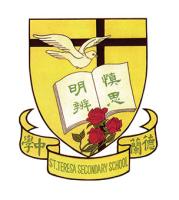| Language Policy |
The school takes a whole-school approach to creating an English-rich environment. English is adopted as the medium of instruction in S1-S6 Mathematics and several modules of S1-S3 Science. Subject-related vocabulary and usage are taught in all subjects, except Chinese, Chinese History and Putonghua. Putonghua is taught in all S.1-S.2 classes. Foreign language classes are offered to boost students' language abilities. |
| Learning and Teaching Strategies |
1. Develop students' habits of making notes and using suitable learning tools to consolidate their self-learning skills. <br>2. Conduct assessment to help students understand their own learning styles and teachers to adjust teaching strategies and assignments so as to boost the effectiveness of learning and teaching. <br>3. Adopt diverse and interactive modes of learning and implement e-learning to arouse students' interest and enhance learning effectiveness. <br>4. Implement various reading schemes, e.g. Chinese, English, cross-curricular and parent-child ones to develop a love of reading and to strengthen their learning foundation. <br>5. Carry out different modes of formative assessment, summative assessment and academic result analyses to regularly review learning effectiveness and boost students' learning capability. <br>6. Make effective use of statistical analyses of students' test and exam results to inform learning and teaching.<br>7. To take into account the school's development, curriculum reforms and society's needs, the Learning and Teaching Committee regularly reviews the school's curricula and teaching pedagogies so as to cater to students' interests and abilities and explore effective teaching methods and assessments. |
| School-based curriculum |
1. Electives: 2X and 3X. Chinese History, History, Geography, Tourism and Hospitality Studies, Ethics and Religious Studies, Economics, Business, Accounting and Financial Studies, Physics, Biology, Chemistry, Health Management and Social Care, Visual Arts.<br> 2. Curriculum highlights: Inclusion of elements of gifted education into the curriculum to cater for learner diversity and help students better develop their potentials, a strong interface between the junior and the senior curricula. |
| Approach to Catering for Learner Diversity |
The Student Support Team has adopted the transdisciplinary approach to cater for gifted students and those with special learning needs. Through the analysis of assessment data and teacher observation, students’ talents or difficulties are identified early on. With homework adjustment, special test/exam arrangements, suitable training and early intervention, our school effectively helps students develop their potentials and alleviate their learning difficulties so as to boost academic and non-academic performance as well as leadership skills. Differentiated teaching through appropriate grouping of students in all forms also helps meet their needs. Apart from the inclusion of the three core elements advocated in gifted education, i.e. higher-order thinking skills, creativity and personal-social competence in the curriculum for all students in the regular classroom, enrichment programmes are also conducted outside the regular classroom. With reference to the regulations of the HKEAA, special test/examination arrangements are made for students with special learning needs. |
| Approach to Integrated Education |
Our whole school approach to integrated education supports students with special learning needs and leads to better learning outcomes and a caring school culture. The Student Support Team, supervised by the Vice Principal (Learning & Teaching). The team consists of the Vice Principal (School Ethos & Student Support), the SENCO, the Head of the Student Character Formation Team, the Head of Academic Affairs, 2 teachers for SEN, the school-based educational psychologist, 2 social workers, 2 counsellors and 1 assistant. The Learning Support Grant and the NCS-SEN Grant are fully utilized: 2 counsellors and 1 assistant have been hired and a wide range of professional services have been purchased to facilitate student learning. The deployment of such resources aims to enhance students’ learning skills, confidence and inter-personal skills. Besides special test/exam arrangements, cross-disciplinary meetings are held for individual learning profiles to better facilitate learner diversity. |
| Education Support for Non-Chinese Speaking (NCS) Students |
|
| Home-School Co-operation |
The school has clear policies on home-school cooperation. Apart from the school maintaining contact with parents through circulars, school app, school newsletters and newspapers, PTA newsletters, school profile, and parents’ day, the PTA also organises a variety of activities to strengthen home-school cooperation. Besides this, parents are also fully involved in school affairs through their representation on the Incorporated Management Committee. |
| School Ethos |
The school has a loving and caring culture where staff, students and parents share the same beliefs and work together harmoniously. |
| School Development Plan |
Be confident and diligent, enhance learning effectiveness.<br>Be responsible and disciplined, practise the spirit of Christ. |
| Teacher Professional Training and Development |
1. Carry out peer lesson observation so that teachers can exchange their teaching experience. <br>2. Organize e-learning training workshops to familiarise teachers with different learning apps so as to enhance lesson interaction and effectiveness. A workshop on the production of learning and teaching videos will be organised to boost self-directed learning.<br>3. Hold workshops on spirituality education to provide teachers with the necessary professional support. |
| Life-wide Learning |
Under the leadership of the Students' Association and the 4 houses, the 24 clubs and societies, 6 service groups and over 20 interest groups organise activities for students which cover areas including religious formation, academic learning, recreation, sports and services. |
